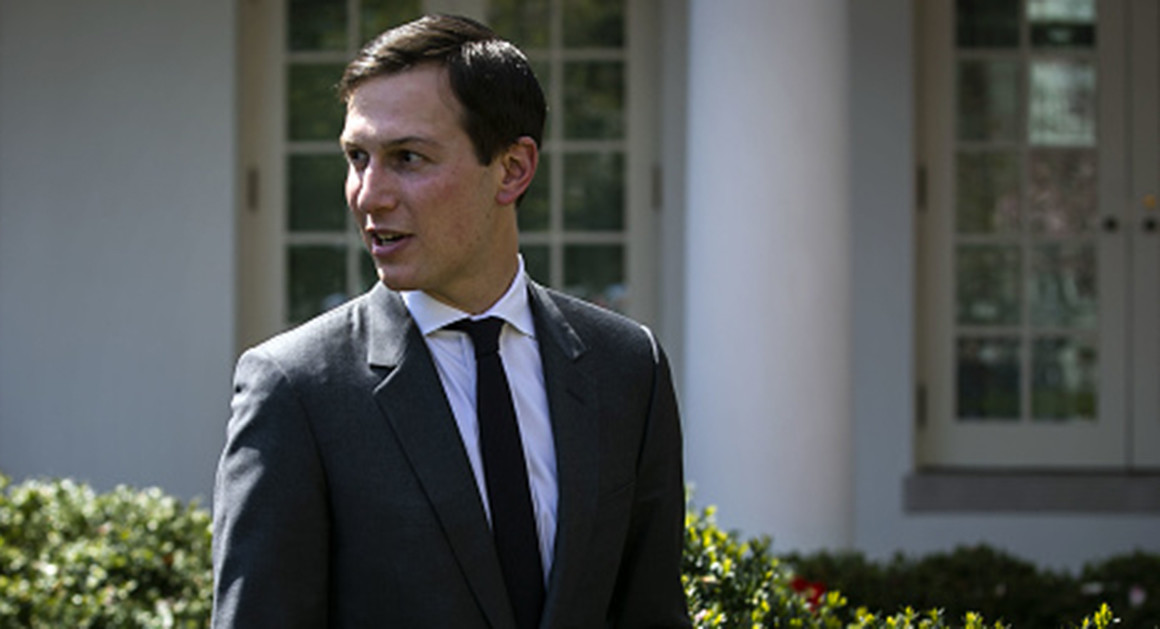Lawmakers near deal on Kushner-backed prison reform plan


Lawmakers on the House Judiciary Committee are nearing agreement on a bipartisan prison reform bill that could be approved by the panel as soon as Wednesday and reach the floor in early May.
The legislation, which would establish training programs aimed at reducing recidivism rates, is the product of months of negotiation between Reps. Doug Collins (R-Ga.), Hakeem Jeffries (D-N.Y.), President Donald Trump’s son-in-law and adviser Jared Kushner and Attorney General Jeff Sessions.
Story Continued Below
Jeffries said in an interview Tuesday that negotiators are still haggling over final language but that the potentially deal-killing provisions proposed by the Department of Justice have been eliminated. The committee is scheduled to mark up the bill Wednesday afternoon, and the full House could vote on the legislation when lawmakers return from next week’s weeklong recess.
“The poison pills that had been inserted potentially at the request of the Department of Justice have all been removed, as far as I can tell,” Jeffries said. “I think we’re eventually going to get to a good place.”
One such nonstarter was concealed-carry language that would have allowed federal prosecutors and judges to carry firearms. DOJ also floated the creation of a “lewdness offense,” Jeffries said, but that is also now out of the bill.
Getting the legislation signed into law would be a coup for Kushner, who has struggled to land a policy win despite a sprawling portfolio that at times has included everything from negotiating peace in the Middle East to trying to combat the opioid epidemic.
Kushner, who was on the Hill last week to rally support for the proposal and met with House Speaker Paul Ryan (R-Wis.), has a personal connection to the bill. His father, Charles Kushner, was sentenced to two years in prison in 2005 for illegal campaign contributions and witness tampering.
The legislation could face stiff winds in the Senate, however, where Judiciary Chairman Chuck Grassley (R-Iowa) has pushed a broader criminal justice bill that includes both prison and sentencing reform. Grassley railed against Sessions, a staunch opponent of changing current sentencing laws, over the issue in February.
But the prison reform proposal does have key advocates in the Senate, including Majority Whip John Cornyn (R-Texas), who has introduced a similar bill and promised to push for floor time. The legislation also has the support of some high-profile conservatives, including the Koch brothers, who could help rally GOP support for the plan.
Freedom Partners, an arm of the Koch network, issued a statement in support of the bill Tuesday: "This legislation will increase public safety by ensuring individuals leave prison better than when they went in through education, skills training, treatment and other programs, and will restore dignity by prohibiting the use of restraints on pregnant prisoners," Freedom Partners Chairman Mark Holden said.
In an interview last week, Jeffries was less optimistic about the bill’s chances, slamming Sessions for his role in the talks. “It’s an open question whether the attorney general is proceeding in good faith or whether he wants to blow up the possibility of any real criminal justice reform,” Jeffries said at the time.
But now, Jeffries said, talks are on back on track. One of the main outstanding issues is the number of prisoners who would have access to the training programs offered in the bill, which is intended to reduce the number of repeat offenders. The bill would also allow for “good time” credits that wouldn’t shorten a prisoner’s sentence but would provide prisoners with the opportunity to serve some of that time in a halfway house or similar setting.
“There’s an exclusion list that would limit the number of people who can get access to the educational and vocational programs that will be bolstered by this legislation,” Jeffries said. “Many of us want to make sure that the exclusion list is the exception that does not become the rule.”
